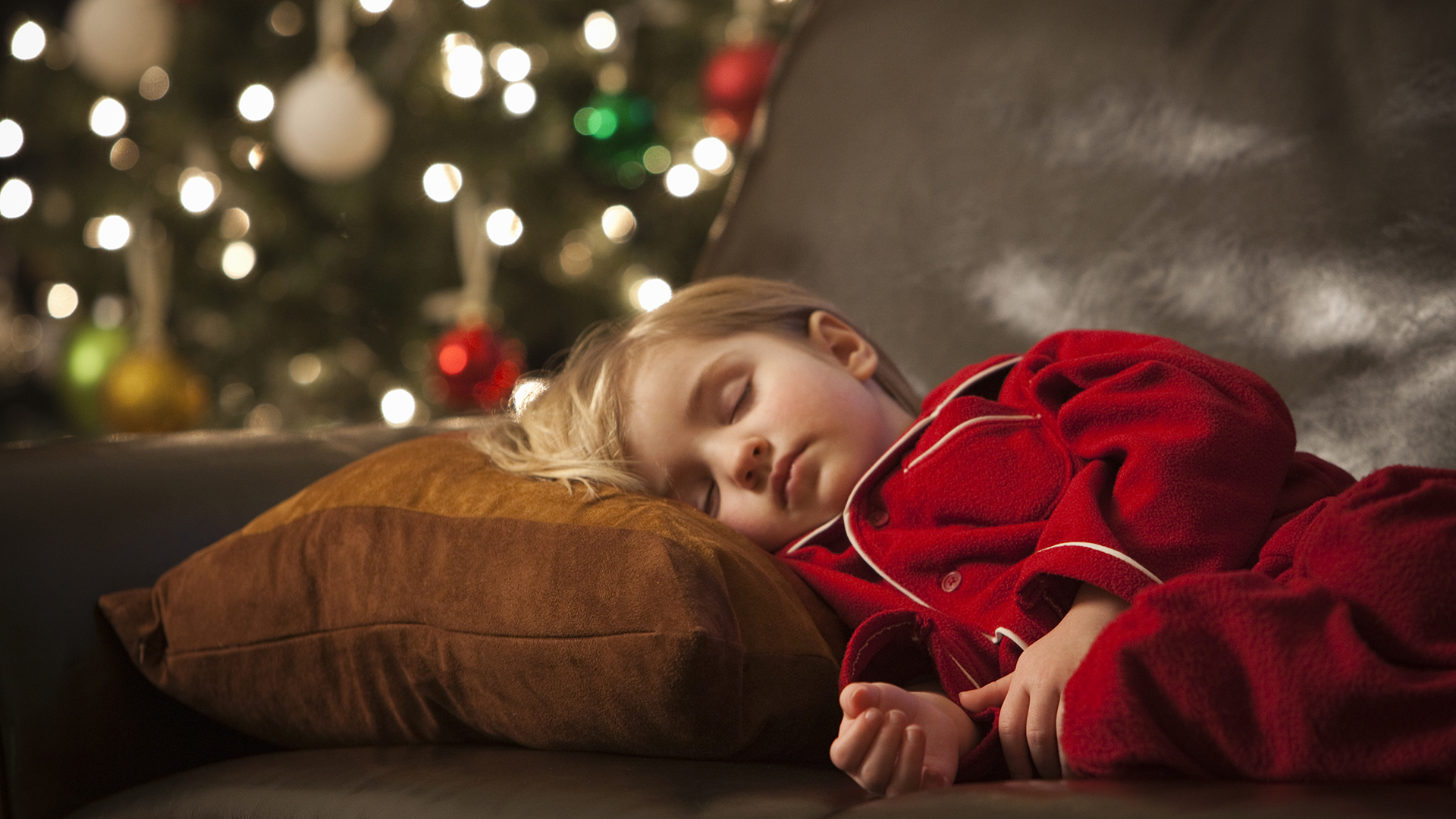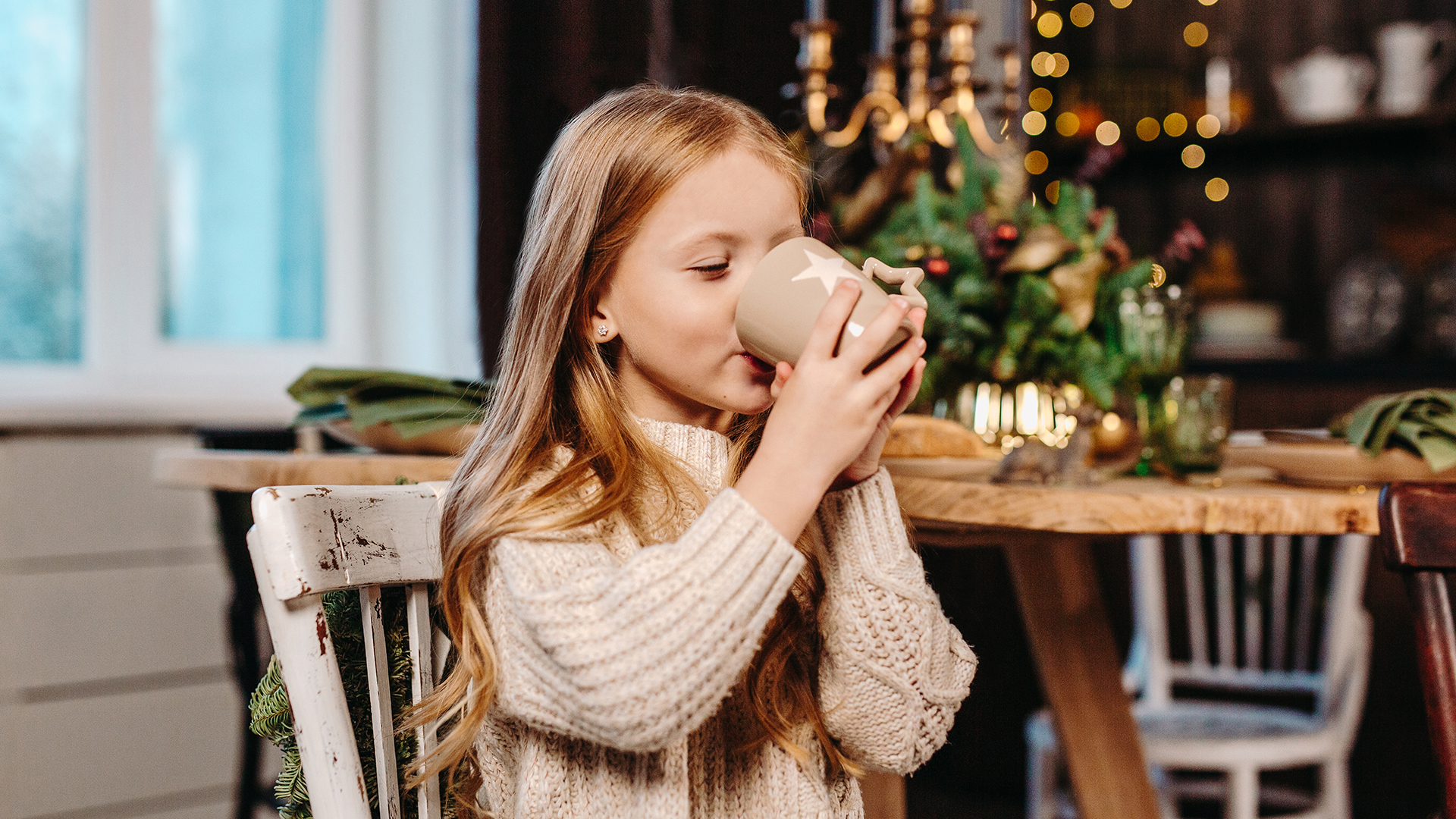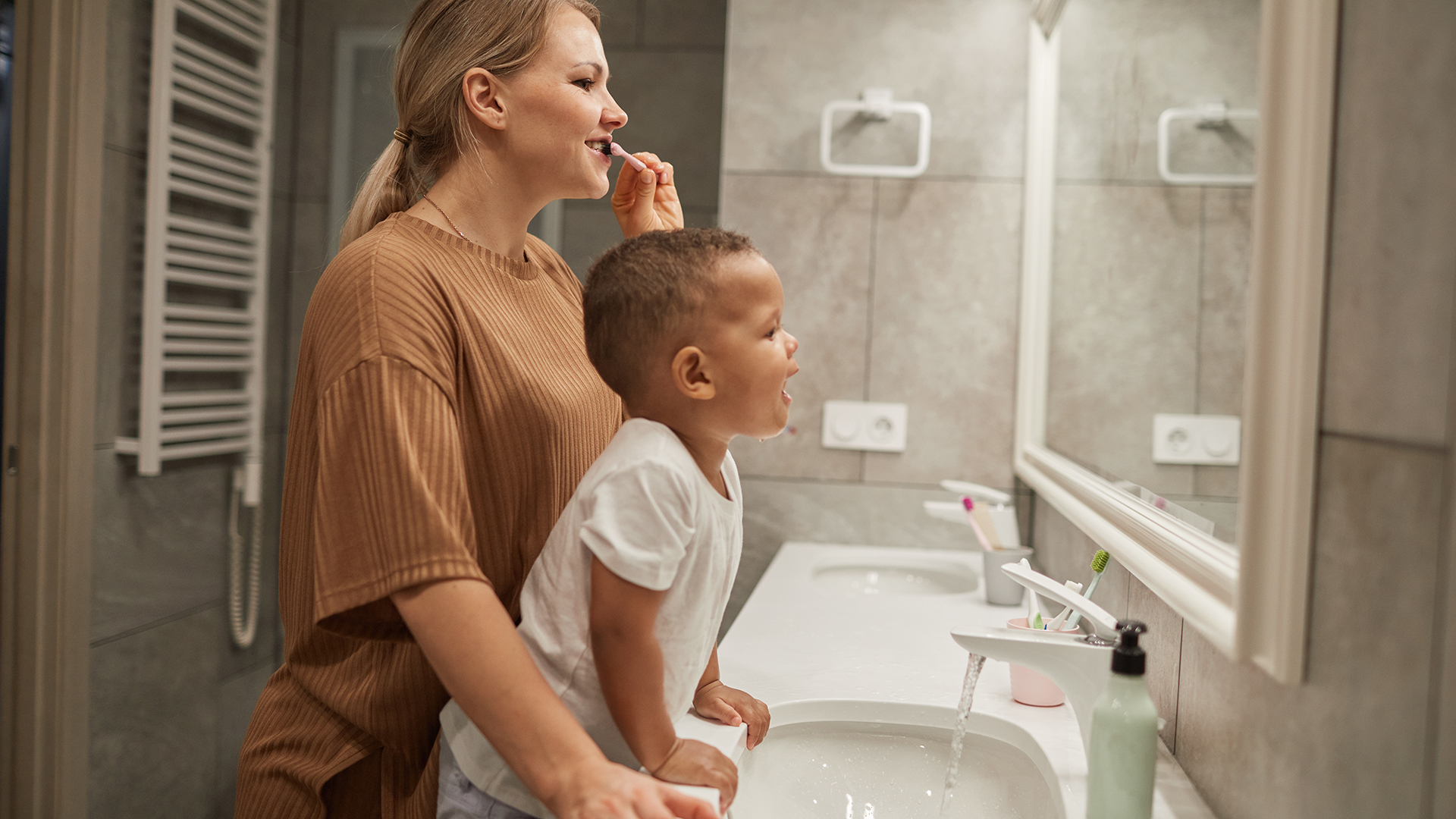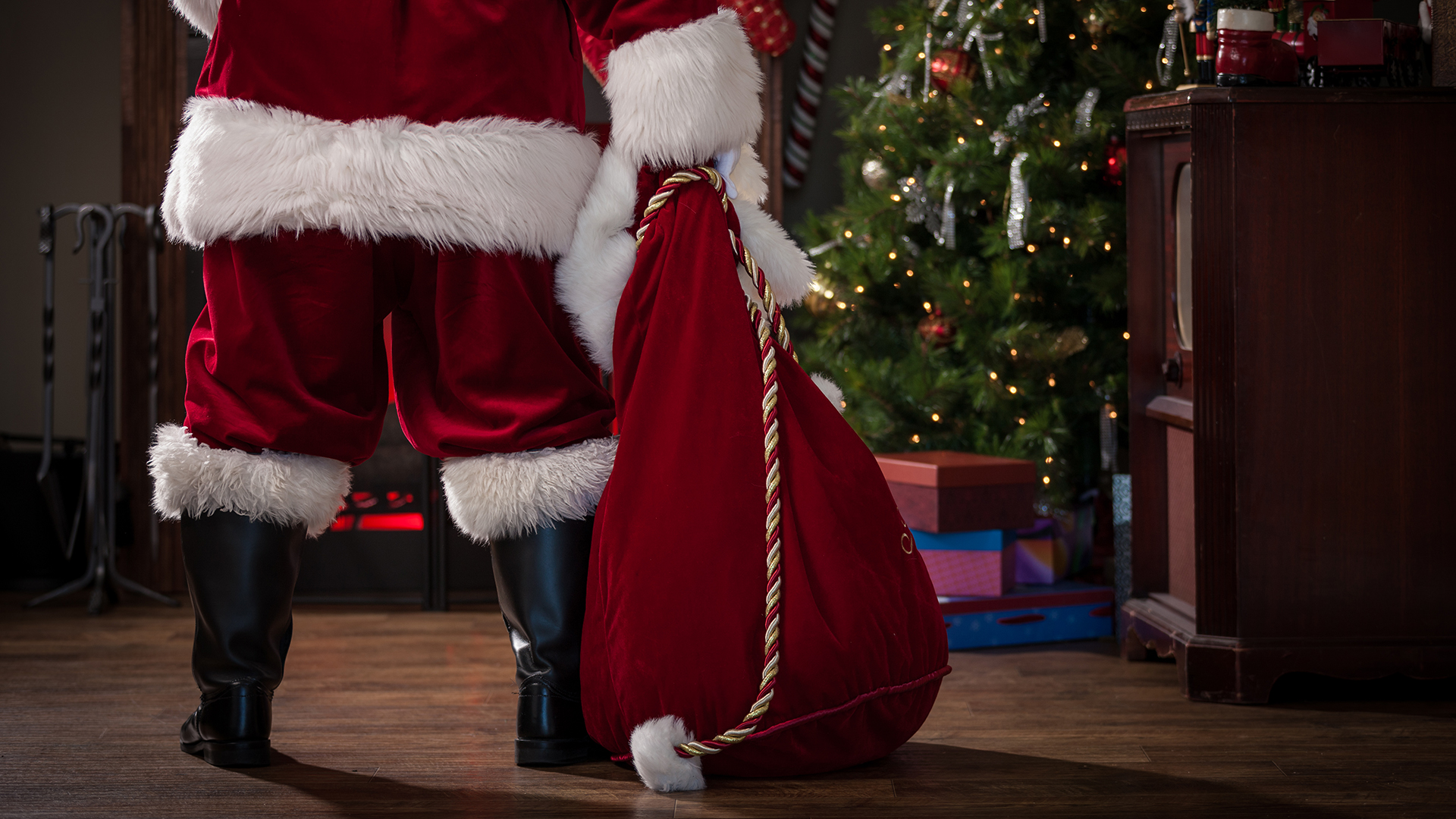How to get your kids to sleep on Christmas Eve: 5 techniques to try (and 1 to avoid)
Santa's bringing calm breathing, warm drinks, and an early night all round

Sign up for breaking news, reviews, opinion, top tech deals, and more.
You are now subscribed
Your newsletter sign-up was successful
When Santa is approaching, even the best mattress might not be enough to soothe your little ones to sleep. After all, it’s hard to drift off when you know a sleigh full of Christmas gifts is flying towards you. For parents, however, getting kids to fall asleep on Christmas Eve can be the biggest headache of the holiday season.
Dr Patel, sleep expert at Time4Sleep, has some advice for stressed parents: stick to the usual bedtime routine. “Just because it’s Christmas Eve, there’s no need to abandon the bedtime routines your children have already grown used to. Sticking to the same steps can help your children get into the right mindset for sleeping.”
But let's be honest – that's easier said than done. In all the excitement of Christmas, you might find the bedtime routine doesn’t have the calming effect it usually does. If you’re hoping for a silent night this Christmas Eve, here are a few techniques to get your kids to sleep.
5 techniques to get kids to sleep on Christmas Eve
1. Start the wind-down routine early
To help ease your kids into the bedtime mood, start the wind-down phase during the afternoon. That doesn’t have to be as boring as it sounds, and it also doesn't mean going to bed mid-evening – although you can benefit from more sleep in winter. Instead, simply try switching high-energy Christmas activities for something a little more soothing.
“There are plenty of Christmas activities, like baking gingerbread or sharing festive stories, that can encourage relaxation,” says Dr Patel. And you don’t have to stay in the house. “Engaging in physical activities like kids yoga or a short walk helps to channel their energy positively.”
2. Enjoy a warm drink
One of the biggest challenges on Christmas Eve is trying to convince kids that going to bed is more fun than staying awake. Negotiate this by starting bedtime with their favorite warm drink. “Giving kids a small treat before bed can encourage them to start their bedtime routine willingly,” says Dr Patel.

It’s best to avoid sugary drinks, but a mug of warm milk can be a tasty treat that also contains some sleep-boosting ingredients. “[Milk] contains the amino acid tryptophan, which can help the body release serotonin, a neurotransmitter that can reduce anxiety and can help the little ones drift off,” explains Dr Patel. Foods that help you sleep well (and also make good evening snacks) include cashews, hazelnuts, and bananas.
Sign up for breaking news, reviews, opinion, top tech deals, and more.
3. Try some deep breathing exercises
If energy levels are still riding high into the evening, consider some soothing activities to prepare both the body and mind for sleep. “Introduce deep breathing exercises or mindfulness techniques to guide them into a state of calm,” Dr Patel suggests. Dim the Christmas lights to a relaxing glow, put on some gentle festive music, and enjoy a few moments of peace and quiet together.
You can even try these activities on Christmas day itself. A bit of deep breathing in the afternoon can help ease the festive hysteria into something more manageable.
4. Lead by example
If you want to convince the kids to go to sleep, it helps to join them in their nighttime routine. “Setting a good example by going to bed at the same time as your kids can help prevent them from feeling like they’re missing out, and signals that it is time to go to sleep,” Dr Patel explains.

Of course, that doesn't mean you have to give up on some much needed me-time after the kids are in bed. Once the little ones are tucked in, you’re free to sneak out of bed and carry on with your Christmas Eve activities (albeit quietly). However, you might find that having followed the childhood routine, you're quite happy to go to bed – nostalgia can help you fall asleep.
5. Listen to your children
If you’ve tried our tips and energy levels still aren’t dropping, then take a moment to speak as a family about good sleep hygiene, and come up with some happier solutions. Dr Patel warns against forcing your kids into a routine they aren’t comfortable with. “It's important to discover what works best for your own child and establish these practices routinely, especially during times of lower excitement.”
For kids who wake up at the crack of dawn on December 25th, try adding a few extra minutes of sleep to their routine in the week before Christmas. Known as sleep banking, this technique essentially builds a sleep savings account, which you can draw from on the days you're missing out on sleep. For example, when the whole house has to wake up at 6am because the presents have arrived.
Dr Patel recommends introducing these techniques in the lead up to Christmas, so when the big day arrives, you’re recalling a familiar routine. If it’s a little too late in the season for that, don’t panic. It’s always the right time to start thinking about your bedtime routine, and the habits you introduce now can help you out next Christmas.
And one technique to avoid
1. Avoid the Santa scare
He might see you when you’re sleeping, but scaring kids to bed with the threat of no presents should stay in Christmas past. “Be wary if you have particularly anxious or sensitive children,” cautions Dr Patel, “as it could cause further anxiety, making it harder for them to nod off. Ensuring your child doesn’t associate their ability to sleep with negative consequences is important to their general sleep health over the festive period.”

Instead of warning them about an angry Santa, maybe try a gentle reminder that the sooner they go to sleep, the quicker the morning will come and they can get to their presents.

Dr Hana Patel completed her medical training at the University College London in 2005, and became a member of the Royal College of General Practitioners in 2010. She now works as an NHS and private GP specialist in mental health and sleep and is passionate about supporting patients struggling with sleep-related health issues, having previously provided commentary on a range of sleep related topics using her expertise.

Ruth is TechRadar’s Sleep Writer. She’s here to help you find the perfect sleep setup for your budget and personal preferences. As well as keeping a keen eye on everything that’s going on in the world of mattresses, she regularly speaks to experts to help you learn how to improve your sleep habits, whether that’s by debunking sleep myths or explaining the science behind it all. Prior to joining the TechRadar team, she wrote features and product guides for new parents hoping to get a decent night's sleep, as well as writing for a variety of online spaces.